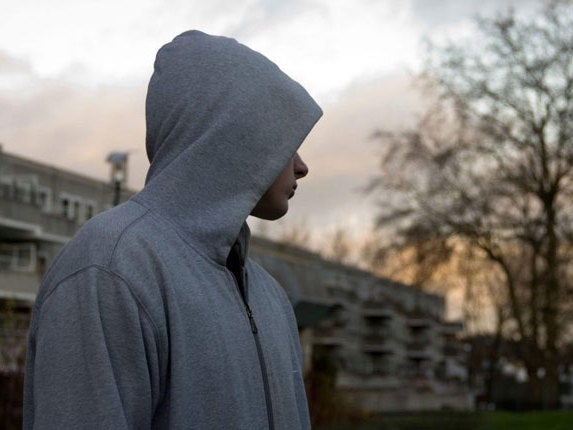Unaccompanied children driven to suicide due to 'gaps in support' from UK, charities warn
Exclusive: Home secretary urged to act amid warnings that thousands of children who arrived in Britain alone are at risk of severe mental health issues and exploitation

Unaccompanied minors in the UK are being driven to self-harm and suicide due to a lack of support provided by the UK government, major charities have warned.
Thousands of children who arrived in Britain alone, often following perilous journeys, are experiencing severe mental health issues due to “gaps in statutory support” provided to them, which is some cases has led them to take their own lives.
A letter to the home secretary from 45 NGOs – including Unicef, the Children’s Society and the NSPCC – expresses “extreme concern” about the rate of self-harm and suicide among the group.
They cite reports of unaccompanied Eritrean young people who have taken their own lives in the past year and a half. All of them had arrived in the UK after fleeing conflict and travelling without their parents across Africa and Europe as young teenagers.
The charities also warn that many unaccompanied minors are at severe risk of trafficking on arrival in the UK, but that a lack of one-to-one support means they are not adequately protected from exploitation.
In some cases, unaccompanied minors who go missing from care are considered as immigration offenders, when in fact they have been lured into exploitation, they said.
The letter called for a scheme of “independent legal guardians”, which already exists in Northern Ireland and Scotland, and allocates each child an advocate who would be able to instruct solicitors on their behalf and represent their interests.
“Although they form a small proportion of looked-after children, separated children often fall through the gaps in statutory support, facing subsequent risks of mental health crisis, suicide and a high risk of going missing, which is also an indicator that they may be facing exploitation,” the charities' letter said.
“A scheme of independent legal guardians could help to safeguard and significantly improve the well-being of separated children, as well as helping to achieve better-coordinated, long-term cost savings for statutory services.”
A total of 2,872 unaccompanied children sought asylum in 2018, though some children who have become separated from their families may not be captured within the Home Office unaccompanied asylum-seeking children figures.
James Simmonds-Read, service manager for multiple vulnerability at the Children’s Society, said the charity had noticed a rise in self-harm and suicidal ideation among unaccompanied minors in recent months, but that the statutory support did not exist to respond to this.
“We've seen a rise in cases of young people who have committed suicide or attempted suicide, and there is growing concern that no one knows what they’re going through. No one is picking up on their vulnerabilities,” he said.
“These young people have left situations of horrendous levels of abuse in their own countries, or witnessed highly traumatic experiences, and they’re arriving in the UK with this long history of trauma – but without the required independent professionals there to support them.”
He added that many children are being "criminalised" despite already having being found in situations of exploitation or surrounded by "huge indicators" of trafficking.
“We have huge numbers of children going missing from care but no independent person able to follow up on that, and often instead those young people being treated as immigration offenders rather than being recognised as potential victims of exploitation or trafficking," he said.
“There is a very stark difference between how British children and unaccompanied minors are treated when they go missing. Police and social workers will often immediately think about immigration offending rather than the very real realities of exploitation.
“With a legal guardian they would be able to challenge that criminalisation process and prevent that."
A Home Office spokesperson said: “Modern slavery is an abhorrent crime that we are tackling by giving law enforcement the tools they need to identify victims and pursue offenders.
“Our world-leading Modern Slavery Act has led to thousands of victims – including children – being protected and hundreds of convictions. But we know there is more to do and are working with police to see what more can be done to improve their response to this terrible crime.
“We recognise that unaccompanied asylum seeking and refugee children can be some of the most vulnerable in our society and we take their wellbeing extremely seriously.
“All of these children in England are referred to the Refugee Council’s Children’s Panel and they are also entitled to legal assistance when making an asylum claim. These arrangements ensure unaccompanied children are provided with the independent support and advice that they need.”
Subscribe to Independent Premium to bookmark this article
Want to bookmark your favourite articles and stories to read or reference later? Start your Independent Premium subscription today.

Join our commenting forum
Join thought-provoking conversations, follow other Independent readers and see their replies